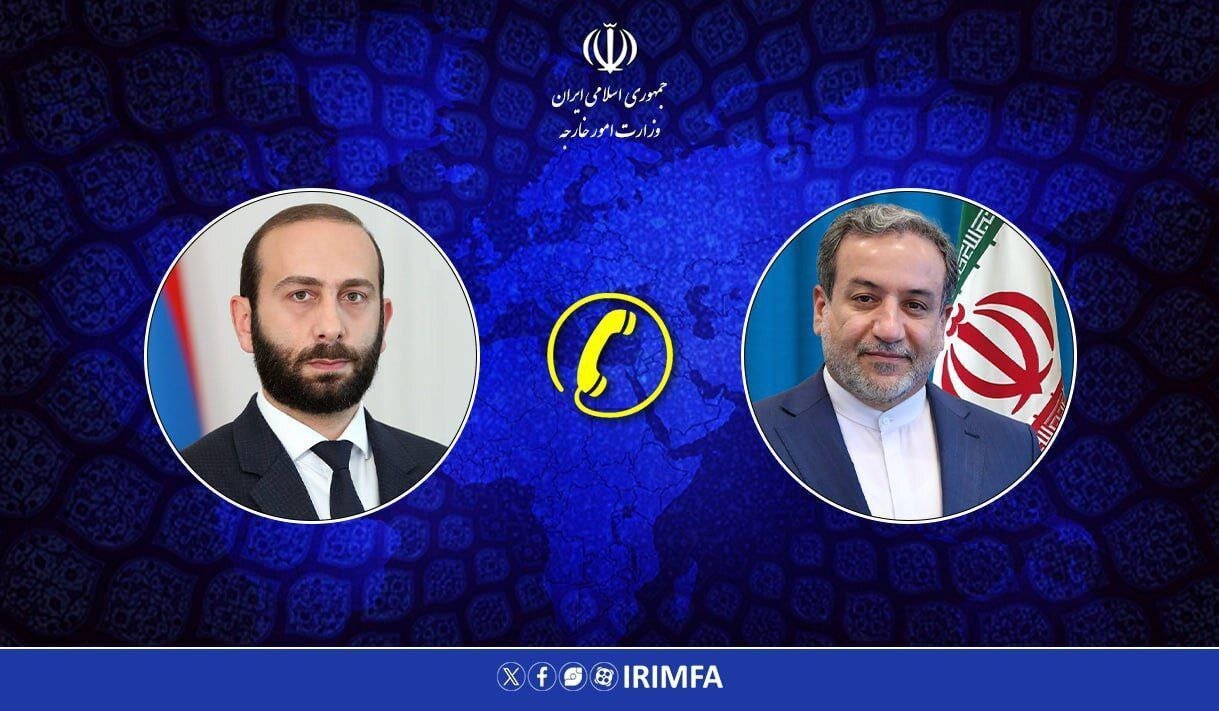Sovereignty ‘non-negotiable’ in Caucasus transit talks, Araghchi tells Armenian counterpart

TEHRAN – Iran’s Foreign Minister Abbas Araghchi emphasized the importance of respecting national sovereignty in a Tuesday phone call with his Armenian counterpart, Ararat Mirzoyan, as the two discussed recent developments in the Armenia-Azerbaijan peace process and regional connectivity initiatives.
“Every decision must fully respect the national sovereignty of countries,” Araghchi stated, underscoring Iran’s firm position that any agreement affecting regional geopolitics must prioritize the territorial integrity and security of all neighboring states.
The conversation followed Armenia’s announcement of a peace memorandum with Azerbaijan, signed under U.S. mediation at the White House, where President Donald Trump claimed credit for brokering the deal.
The agreement, which includes provisions for unblocking regional transport routes, has raised concerns in Tehran about potential shifts in the South Caucasus’ geopolitical landscape.
Iran has consistently advocated for regional stability and opposed arrangements that could disrupt its strategic interests or access to vital transit routes, particularly those connecting it to Armenia and Georgia.
In their phone call, Mirzoyan briefed Araghchi on the details of the peace agreement and the planned Caucasus transit corridor project, assuring Tehran that Armenia considers its relationship with Iran a priority.
He described the ties as rooted in mutual respect and good neighborliness, emphasizing Armenia’s commitment to ensuring that regional decisions align with Iran’s interests.
Araghchi welcomed the peace efforts but cautioned that any new transit routes must not alter the region’s geopolitical balance or sever Iran’s access to existing networks.
The Iranian top diplomat stressed that stability and security considerations are essential for any regional agreement.
Experts, meanwhile, note that Iran has the legal right to object and potentially block transit plans in the South Caucasus if they might harm its interest, as international law requires countries directly affected by a decision to be involved in making it. According to the Vienna Convention on treaties, any plan impacting Iran's borders or trade routes needs Iran's approval to be legal.
Also, according to a ruling by the International Court of Justice, Iran's closeness to Syunik and its dependence on regional trade means its borders and economy should be taken into account in the potential development of new transit routes.
Leave a Comment